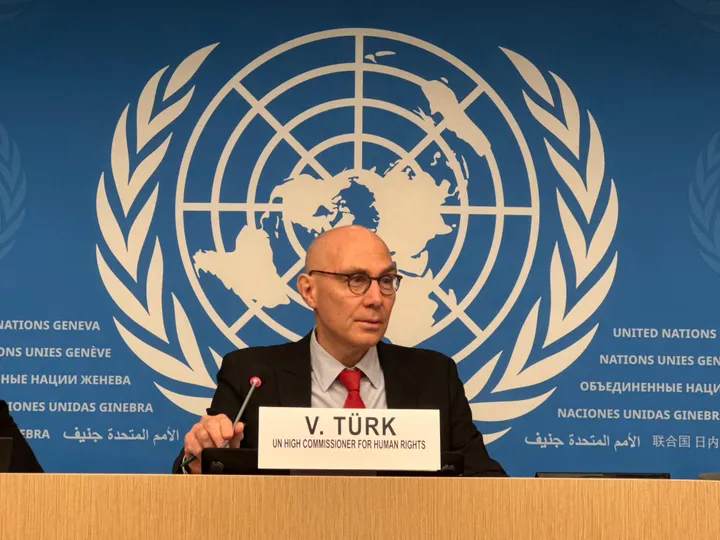There is mounting outrage in Bosnia over a growing perception that the European Union Commissioner for Enlargement, Oliver Varhelyi, is appeasing the country's nationalist Serb leader Milorad Dodik.
According to leaked documents, a visit by Varhelyi towards the end of November to ostensibly diffuse tensions in the country seemed to have had a decidedly different tone in private.
In a press release following a meeting with Dodik and the country's political stakeholders, Varhelyi said that he had made it "clear that the European Union is fully committed to the stability, sovereignty, unity, and integrity of Bosnia and Herzegovina."
In private, however, Varhelyi seemed to acquiesce to steps by Dodik, which resulted in a December 10 session in the Serb parliament of Republika Srpska, the Serbian majority region of Bosnia and Herzegovina, advancing measures that would strengthen secessionist tendencies.
In a private note following the meeting on November 25, sixteen days before the parliamentary sessions by Republika Srpska, Varhelyi had agreed that it would "indeed take place, but that a moratorium to pass legislation on the unilateral withdrawal from state institutions would be announced for a 6-month period. This had been agreed, and RS (Republika Srpska) representatives would be held accountable for any contrary actions."
The report does not lay out details of the agreement with Dodik, but that both sides had "agreed" on the parliamentary session, which set out a path for the first time that would have seen the region withdraw from the Bosnian Army, security services, tax system, and judiciary.
As per the agreement reached with the EU representative on November 25, Serbian politicians officially announced on December 7 for the first time, their intentions to hold the session.
In a further concession to Dodik's sabre-rattling, Varhelyi offered another olive branch to the would-be separatist leader.
According to the leaked document, Varhelyi "shared his frank assessment that his predecessor, High Representative Inzko, was to blame for the current political crises."
In one of his final acts in office, the former High Representative, Valentin Inzko, whose term ended earlier this year, issued a ban on genocide denial in the face of growing denialism of the ethnic cleansing committed by Serb forces of Bosnian Muslims in the 1990s.
The High Representative's office was created to ensure that The Dayton Peace Accords of 1995, which ended the 1992–95 Bosnian War, is implemented.
Politicians and officials, including Dodik, in the Serb province of Bosnia, have in recent years grown increasingly assertive in questioning the Srebrenica genocide, which resulted in the execution of 8,372 Muslim men and boys.
In recent days, news emerged that EU officials were working to "correct" the law implemented by Inzko.
The move is widely seen as a victory for Dodik, who has threatened to reignite tensions in the region and break up the country if the law is not rescinded.
In a sign of how bold and muscular Dodik has become in Bosnia, he warned that if western countries imposed sanctions on him or Republika Srpska, he would turn to China and Russia for assistance.
Critics of the latest revelations have accused the EU representative of not only "appeasing" the Serbian nationalist but of "openly colluding" in the break up of the country.
Varhelyi, a Hungarian, is widely believed to be close to the country's right-wing prime minister, Viktor Orban, and has faced questions around his lack of impartiality in his role as the EU's Commissioner for Enlargement.
In recent public comments, Orban questioned whether it was at all possible that Bosnian Muslims could be integrated within the EU. This follows remarks he made in 2018 suggesting that Europe and Islam don't mix.
A Hungarian opposition member of parliament responding to the latest revelations said that it was "deeply disturbing" to see Varhelyi "assisting in Bosnia's breakup."
"Everyone knew it was a terrible idea to put Orban's appointee in charge of EU neighbourhood policy— but this has grown into a security concern & needs urgent investigation," she added.
Serbian officials in Republika Srpska have denied any coordination with Varhelyi.























